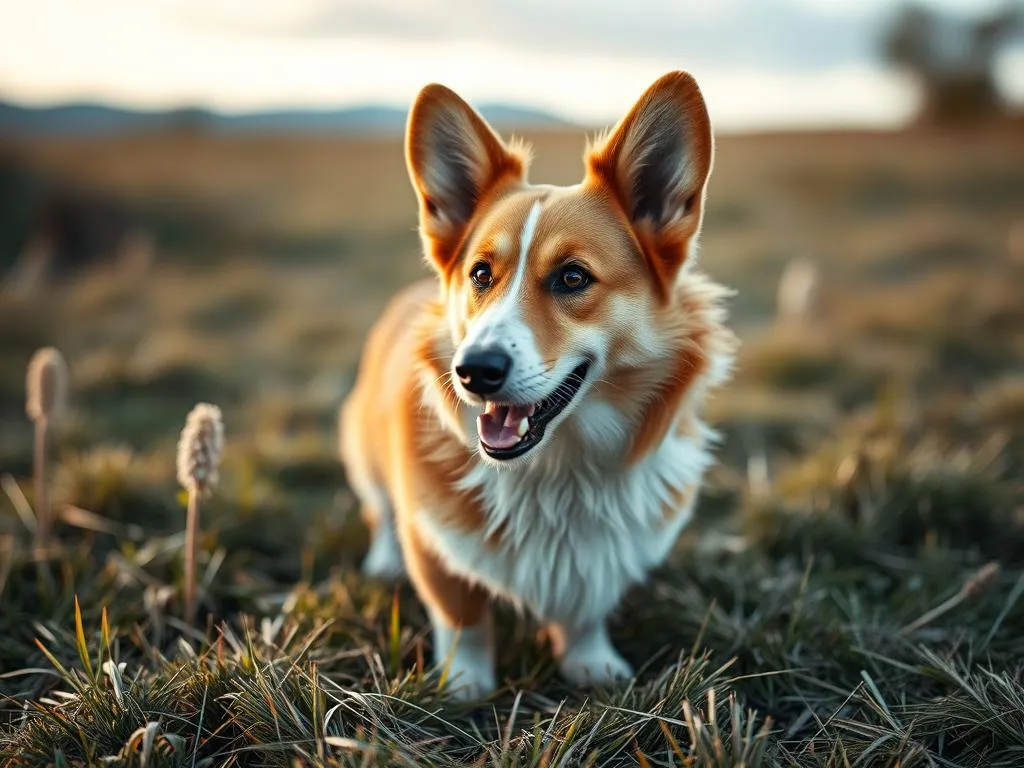
Corgis have captured the hearts of dog lovers around the world with their charming personalities and distinctive appearances. These small, sturdy dogs are not just adorable companions; they have a rich history as herding dogs. Understanding the unique traits that make Corgis special is essential for anyone considering them as working dogs or beloved pets. This article delves into the exciting world of Corgis, exploring their herding instincts, training needs, and suitability as herding dogs.
Corgi Breed Overview
History of Corgis
The Corgi breed has its roots in Wales, where they were primarily used for herding cattle and sheep. The two main types of Corgis—the Pembroke Welsh Corgi and the Cardigan Welsh Corgi—each have distinct histories and characteristics. The Pembroke is often associated with royalty, especially Queen Elizabeth II, who has popularized the breed. In contrast, the Cardigan Welsh Corgi has a more ancient lineage, believed to date back over 3,000 years.
Despite their differences, both breeds share a common purpose as herding dogs. Their low stature allows them to nip at the heels of livestock while avoiding kicks from larger animals. This unique ability has made them invaluable on farms, showcasing their keen intelligence and agility.
Physical Characteristics
Corgis are small but robust dogs, typically standing around 10 to 12 inches tall at the shoulder and weighing between 25 to 30 pounds. Both Pembroke and Cardigan Corgis have a distinctive appearance, characterized by short legs, long bodies, and erect ears.
- Pembroke Corgis usually have a docked tail, while the Cardigan Corgis possess a long, bushy tail.
- The coat of both breeds can vary in color, including red, sable, fawn, brindle, and even blue merle for Cardigans.
These physical traits not only contribute to their unique charm but also play a role in their herding capabilities.
Herding Instincts in Corgis
Understanding Herding Dogs
Herding dogs are bred for their ability to control and manage livestock. These dogs are known for their intelligence, agility, and strong instincts. Effective herding dogs typically possess the following traits:
- Strong Work Ethic: Herding dogs thrive on having a job to do.
- Intelligence: Quick learners who can pick up commands and tasks easily.
- Instinctual Drive: Natural herding behaviors, including stalking and circling.
Corgis’ Natural Herding Instincts
Corgis are born with strong herding instincts. They instinctively chase and nip at the heels of animals, demonstrating their ability to herd effectively. When compared to other herding breeds like Border Collies or Australian Shepherds, Corgis may not possess the same level of energy or stamina, but their intelligence and problem-solving skills can be equally impressive.
Corgis are known for their unique herding style, often using their low center of gravity to maneuver efficiently around livestock. This makes them effective herders, particularly for smaller animals or in confined spaces.
Training and Socialization
Importance of Training for Herding
Training is essential for any dog, especially for those intended for herding work. Corgis require consistent, positive reinforcement training techniques that emphasize their natural instincts. Here are some guidelines for training Corgis as herding dogs:
- Start Early: Begin training while they are still puppies to instill good habits.
- Use Positive Reinforcement: Reward-based training encourages good behavior and strengthens the bond between dog and handler.
- Introduce Herding Commands: Teach basic commands like “come,” “stay,” and “go by” to establish control during herding activities.
Socialization Needs
Socialization is crucial for developing a well-rounded Corgi. Exposing them to various environments, people, and animals helps them learn appropriate behaviors. Recommended socialization practices include:
- Puppy Classes: Enroll Corgis in obedience classes to interact with other dogs.
- Controlled Herding Experiences: Introduce them to livestock gradually, allowing them to observe and learn.
- Varied Outings: Take Corgis to parks, pet-friendly stores, and other public places to build confidence.
A well-socialized Corgi will be more adaptable and effective in herding situations while also being a pleasant companion.
Corgis in Herding Activities
Corgis in Working Farms
Corgis have a long-standing tradition on farms, where they excel in herding tasks. Many farmers have successfully integrated Corgis into their operations, utilizing their natural instincts and trainability. Real-life examples highlight the effectiveness of Corgis in herding:
- Success Stories: Numerous farmers have reported that their Corgis efficiently manage flocks of sheep or groups of cattle, showcasing their adaptability to various livestock.
- Testimonials: Many Corgi owners and farmers attest to the breed’s intelligence and ability to learn quickly, making them valuable assets on working farms.
Corgis in Dog Sports
Beyond traditional herding, Corgis also participate in dog sports, particularly herding trials and competitions. These events test the dogs’ herding abilities and showcase their skills in a competitive environment. Corgis have been known to perform admirably in these trials, often surprising spectators with their agility, speed, and precision.
Participating in dog sports not only provides physical exercise for Corgis but also stimulates their minds, making it a rewarding experience for both the dog and the owner.
Pros and Cons of Corgis as Herding Dogs
Advantages
Corgis bring several advantages to the table as herding dogs:
- Intelligence and Trainability: They are quick learners, making them easy to train for herding tasks.
- Versatility and Adaptability: Corgis can thrive in various environments, whether on a farm or in a family home.
Disadvantages
However, there are some potential downsides to consider:
- Behavioral Challenges: Corgis can be stubborn or independent, which may lead to issues if not properly trained and managed.
- Limitations Compared to Other Breeds: While effective, Corgis may not match the stamina and drive of larger herding breeds like Border Collies.
Understanding both the advantages and disadvantages of Corgis as herding dogs can help prospective owners make informed decisions.
Corgis as Family Pets vs. Working Dogs
Balancing Work and Play
Corgis are incredibly versatile and can be both family pets and working dogs. Their affectionate nature makes them wonderful companions, while their herding instincts fulfill their need for activity and engagement. Striking the right balance between work and play is essential for a happy Corgi.
Owners can incorporate herding activities into their routines, allowing Corgis to engage in their natural instincts while also enjoying family time. This dual role can enrich the lives of both the dog and the family.
Lifestyle Considerations
Corgis thrive in environments that provide ample space for exercise and exploration. They require both physical activity and mental stimulation to stay happy and healthy. Key lifestyle considerations include:
- Space Requirements: While they can adapt to apartment living, Corgis benefit from access to a yard or open area for play and herding activities.
- Activity Level: Regular walks, playtime, and training sessions are vital for keeping Corgis physically and mentally fit.
Ensuring that a Corgi’s lifestyle aligns with its needs is crucial for a harmonious relationship between dog and owner.
Conclusion
In summary, Corgis can indeed be good herding dogs. Their natural instincts, intelligence, and adaptability make them suitable for various roles, whether as working dogs on farms or cherished family pets. While they possess unique advantages, potential challenges should also be considered. For those who appreciate their distinctive traits and are willing to invest time in training and socialization, Corgis can provide both companionship and a fulfilling working relationship.
Understanding the intricacies of the Corgi breed is essential for anyone considering them as herding dogs or family pets. Their history, characteristics, and herding instincts make them a fascinating choice for dog lovers who value both work and play.









